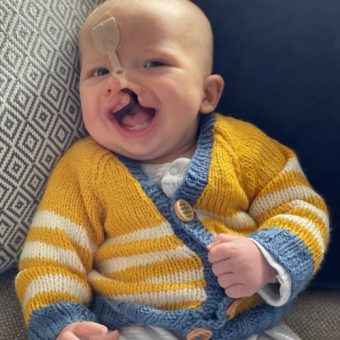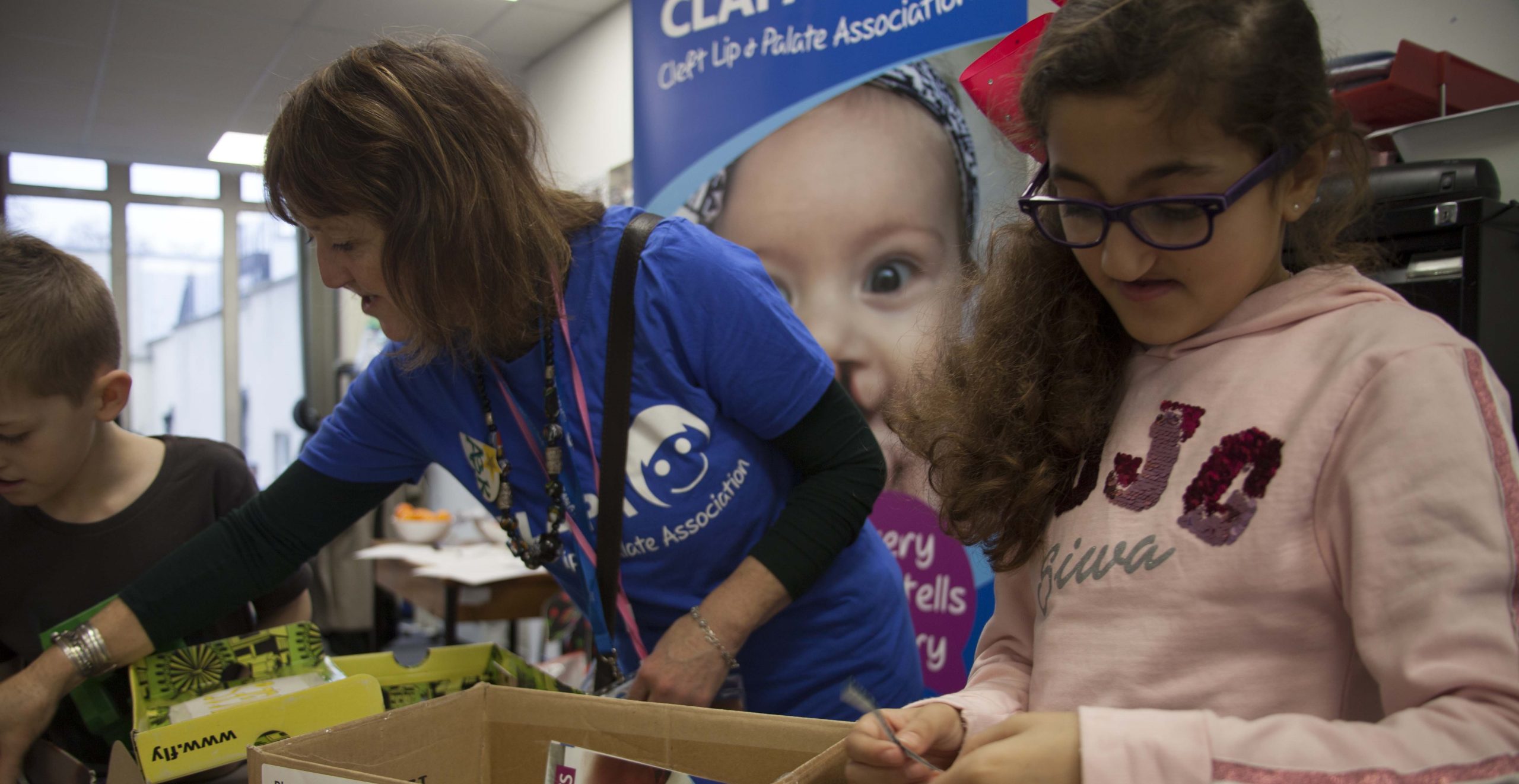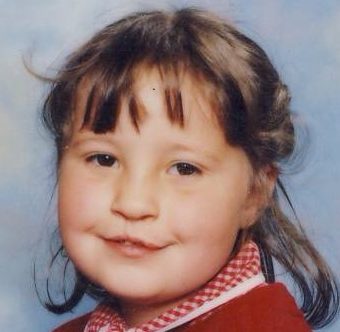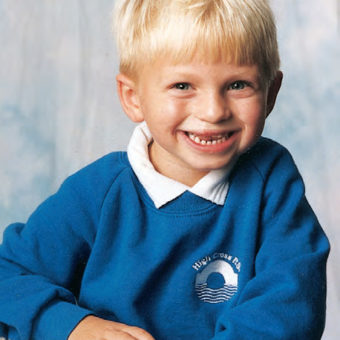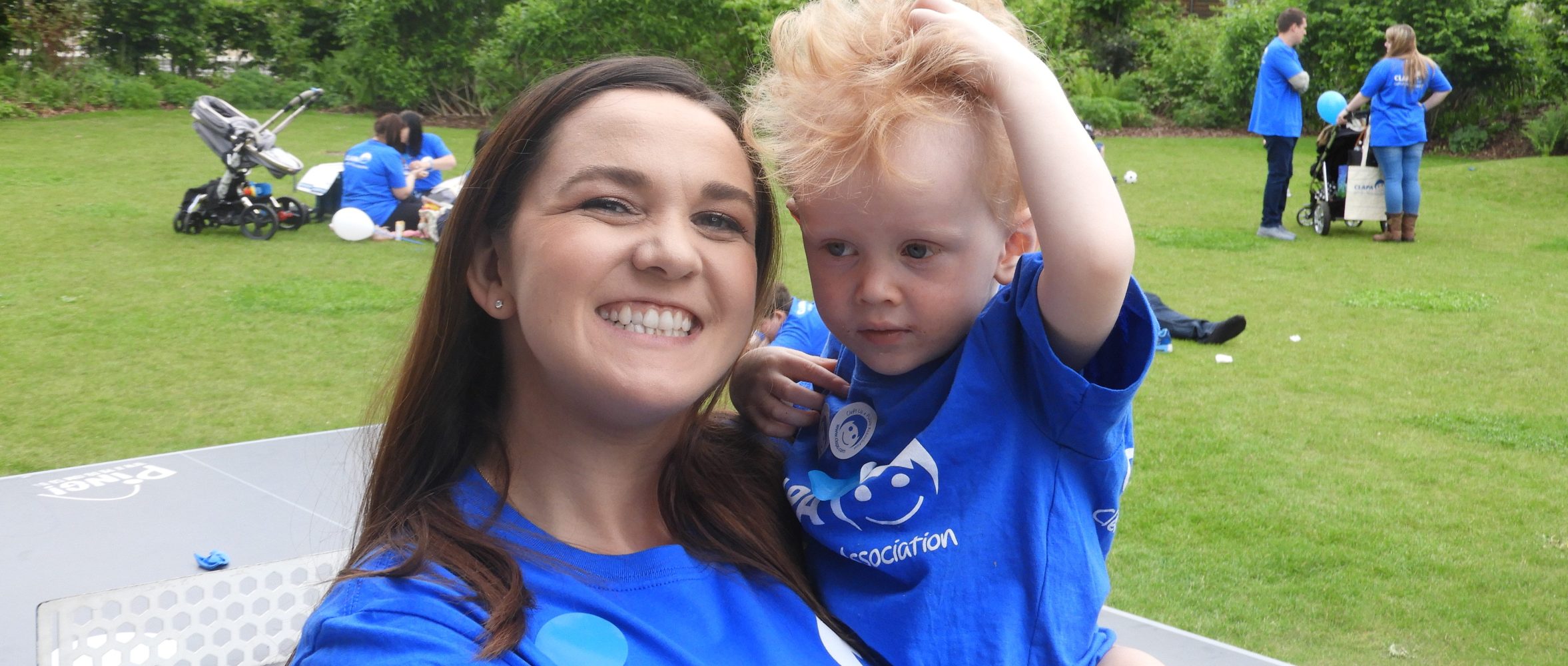
Supporting People Affected by Cleft
As part of Cleft Lip and Palate Awareness Week 2024, we asked the UK cleft community to tell us about how friends and family supported them during difficult times like diagnosis or surgery.
What was helpful? What wasn’t wanted? What do they wish had happened?
Cleft is a complicated condition, and there are still many myths kicking around, which can lead people to say or do insensitive things. This Cleft Lip and Palate Awareness Week, read the stories sent in by the UK cleft community to learn more about what you can do to make a difference.
Jump To:
Learn more on your own
Don’t try to ‘fix’ feelings
Don’t focus on appearance
Remember not all clefts are visible
Take it seriously
Update attendance and sickness absence policies
Don’t say ‘fix’
Offer practical support
Be patient when we’re talking
Note: Quotes submitted by our community have been edited for clarity and style. The photos throughout this page are not of the people who sent in the quotes.
One in 700 babies is born with a cleft around the world; it can happen in any pregnancy. Everyone will meet someone born with a cleft in their lifetime; you probably know someone affected by cleft now, even if you aren’t aware of it!
Learning basic facts about cleft will mean you’re prepared to be sensitive and supportive when it comes up.
“After my scan I avoided learning anything about [cleft], I was really afraid of what I might see or read and that it would just make me feel worse. When I talked to my friend about it later on, she had done loads of research on the CLAPA website and was very reassuring. It made me feel like I wouldn’t be alone in whatever happened next.”
(Tara, Cornwall)
“You have to become an expert so quickly when your child has a medical condition, but it’s so tiring having to explain the same things over and over to family and friends. It felt like I was having to reassure and support them about my son’s cleft when they should have been supporting me and my wife. Maybe they thought asking lots of questions was helpful but I wish they’d cared enough to look up some answers first so they could understand the basics.”
(Paul, Glasgow)
“Visit CLAPA and educate yourself! I would have loved for my friends and family to do this when we had my daughter’s diagnosis. At times, the last thing I wanted was to be talking about it and answering the same questions over and over.”
(Jenn, Warwickshire)
Learn more about cleft lip and palate
Cleft can be a complex condition, and there is often a lot of uncertainty and fear around diagnosis and surgery.
When times are tough, often the best thing you can do is invite someone to talk about how they’re feeling and listen without judgement. You don’t have to understand or agree with how they’re feeling to be a good source of support.
Instead of ‘You’ve got nothing to worry about’, try asking, ‘What would help?’
“When my son was diagnosed at a scan, I was so upset and afraid and I remember my friend telling me how much worse it could have been. She named all these much more serious conditions like I should be happy my son didn’t have one of those instead because to her a cleft lip wasn’t a big deal. I know she was trying to help, but it made me feel like I was wrong for feeling sad at all.
“I knew I would love my son no matter what, but I was so scared about him needing operations and everything else that could happen. It was such a big thing in my mind and she made me feel like it was so small and that I was worrying over nothing.
“I don’t blame her at all, it’s not her fault I was so upset, but I still really remember it. I wish she’d just told me it would all be okay and that no matter how hard it was I was strong enough to deal with all of it.”
(Anonymous)
“[Some people were] dismissive and said, ‘Well, it’s only one or a couple of operations, and it’s all done!’. As if leaving your tiny baby in an operation theatre is an easy thing! They also had no idea about the risk factors for other things or that she could have ended up needing a bone graft, etc., into her childhood/ adolescence. I think the only time I felt fully supported was connecting to other cleft parents through [CLAPA].”
(Jenn, Warwickshire)
“I kept putting on a brave face saying ‘it could be worse’, but one of my friends said to me ‘You are allowed to say it’s a bit rubbish you know’, in a way giving me permission to moan and feel sad about it and admit my true feelings (that I was actually really upset about the diagnosis!). I think that was really helpful for me in terms of coming to terms with the diagnosis. I think some people struggle with what to say but my friend said exactly the right thing in that moment.”
(Anonymous)
“I remember my uncle being really dismissive when we told him about my baby’s cleft because all the treatment was under the NHS. He said there was nothing to worry about because the surgery was free and it’d be fixed when she was still too young to remember. People don’t realise that TV ads aren’t the whole story. I think he really didn’t understand that even if all the treatment was free of charge it would still be hard to deal with and that my family still needed support. CLAPA really supported us the whole way through. It was hard to explain to other people why it mattered, that’s why I needed that community of people who understood without me having to explain.”
(Anonymous)
“Be aware of breastfeeding grief. We are likely to have had no choice but to bottle feed and use expressed milk or formula. It’s not necessarily the easy option and some parents feel a great sense of loss that they can’t feed and nurse a child the way they planned. Try not to gloss over this but listen to and validate these very real feelings.”
(Anonymous)
“The one thing I wish people wouldn’t say is ‘everything will be okay’ if they have no experience of the situation. As well-meaning as it is, it doesn’t help. […] When my son was born I knew almost no-one else who had a cleft, but a work friend told me about her nephew who had a cleft and was doing well and that was an encouragement even though I never met them.”
(Andrew, Glasgow)
“We really struggled when people kept saying ‘it’s so easily fixable’; obviously they are trying to reassure you, but I think when you are coming to terms with being told halfway through a pregnancy that there is any issue with baby, that they can’t 100% confirm what it will look like until baby is born, it can feel so dismissive when people make it sound like it isn’t a huge adjustment to make. Not just because you won’t know the extent but because you are now on a long journey, and your unborn baby is too.
“Everything from the 20-week scan to birth is so overwhelming, […] so saying something like ‘they can fix that easily’ in reference to lip surgery and aesthetics really detracts from the massive road ahead you and your child could have with hearing, speech, multiple surgeries. We just asked that our friends and family asked lots of questions and let us feel like we were allowed to have a big set of emotions about a big event in our and our baby’s lives and not judge us if we sometimes had some emotional thoughts about our future, because we all know deep down we just had to process the emotions and then we came come to terms with it.”
(Louise, Hampshire)

Though you might mean well, focusing on how much less visible or ‘obvious’ someone’s cleft lip might look can make it feel like you’re trying to erase their history, or like you think their cleft lip is something to be ashamed of. Many parents and carers tell us they miss their baby’s ‘first smile’ after the cleft is repaired and that it’s tough to cope with their baby suddenly looking so different. This can be extra difficult when friends and family seem fixated on how much ‘better’ their baby looks.
Everyone will feel differently about their or their child’s cleft, so it’s important to take the lead from them when it comes to talking about it. In general, asking how someone feels is kinder than commenting on their appearance.
Instead of ‘Wow, you’d never know’ or ‘It looks so much better’, try, ‘How are you handling recovery?’ or ‘Are you happy with how everything went?’
“After my daughter’s lip repair, someone said to me, ‘she looks so much better now.’ It felt like they cared more about her appearance than her health. We loved her first smile just as much as we love her new one.”
(Anonymous)
“It’s okay to mourn your baby’s first smile”
(Amy, Consett)
“Personally, I hate it when I get comments like ‘you’d never know’ about my son’s cleft. Someone once said ‘he looks so normal’! It shouldn’t matter how obvious his cleft is, he’s exactly the same person inside.”
(Nick, Aberdeenshire)
“I didn’t find it helpful when people said things like ‘oh it’s ok, the surgical outcomes are so good!’ I also didn’t find it kind when after her lip surgery some well-meaning people said things like ‘oh she looks much better now’. We love our daughter how she looks now and how she looked when she was born and the truth is that we miss her cleft lip.
“I think there’s a lot of misunderstanding from friends/family/others. Parents are more concerned about their child’s wellbeing rather than just their appearance, but that’s what most people comment on!”

A cleft lip is one or two gaps in the upper lip. A cleft palate is a gap in the roof of the mouth.
Around 45% of people with a cleft have a cleft palate without a cleft lip. A cleft palate can have a lasting and profound impact on eating, speaking, hearing and more, but because it’s not ‘visible’ from the outside, most people know very little about it.
People commonly say ‘cleft palate’ when they mean ‘cleft lip’. When talking about cleft, make sure you use the right words.
“When I told a colleague I’d had a cleft palate they looked close at my lips and said ‘wow, you’d never know’, clearly not understanding what a ‘palate’ was. I explained it and how it meant I’d had loads of speech therapy and surgeries, and all he said was ‘at least you don’t have a scar’.”
(Cassie, Devonshire)
Learn more about cleft lip and palate


Cleft can have a lifelong impact
Some people born with a cleft will only need a single operation, but some will need over twenty by the time they finish treatment.
Cleft is a lifelong condition, but many people believe it’s something which only affects babies. This can make it difficult for adults and young people to get the help and support they need with ongoing treatment, speech and hearing, bullying and more.
“Every cleft is unique and differs in complexity. Someone you may know with a cleft may have needed just one operation at a few months old. That doesn’t mean that every cleft is an “easy fix”. Another person may need 20+ operations into adulthood.”
(Antonia)
“Don’t make assumptions [about the impact of cleft] – the person is still a human being with feelings! Ask questions about what they need and how you can help.”
(Anonymous)
“Well-meaning people act like there’s nothing different, which is usually nice, but sometimes it means that when there are problems, they just get glossed over. […] I had a client who kept staring at my lip and it really threw me off, but my manager didn’t get it at all and kept trying to reassure me that it ‘wasn’t noticeable’ even though I know it is.”
(Anonymous)
“[Workplaces need to] be supportive, listen, recognise differences but don’t penalise someone for having a difference. […] If there is a team photo and the person doesn’t want to be in it, don’t force them. You could use this as a conversation starter, but don’t force that either. Remember everyone is different, is affected by, and deals with their situation in their own way.”
(Julia, Hertfordshire)
“Your child’s cleft journey doesn’t just end when they have been discharged! The fact they were born with a cleft doesn’t just go away! Be there for them always as they may still want emotional support or even choose to go back for further treatment.”
(Antonia, London)
“I needed time off for surgery and my work colleagues were very interested in the procedure and asked lots of questions about it. The more I explained it, the more interested they were! I never really talked about my cleft at school or anything because people acted like it was a disease or something weird, but this time it felt like a very normal conversation. It was good to be able to explain it all, I felt proud of all I’d been through and learnt.”
(Anonymous)
Read stories from adults born with a cleft

Update your Policies
Strict attendance and sick leave policies can disproportionately impact people with a health condition like a cleft.
For schoolchildren, not only do they have to catch up on their work while dealing with appointments and surgeries, but they may miss out on 100% attendance awards. This can be upsetting to children who don’t have a choice about missing school.
Cleft treatment as an adult can be hugely disruptive, and cleft being thought of as a ‘childhood condition’ can mean it’s extra difficult for adults to get the support they need to continue their treatment.
“My son’s school were always very good, but my own work particularly at the start didn’t make much effort to learn how much time off I would require in my first year when I used nearly my entire holiday allocation for cleft ops and other appointments.”
(Andrew, Glasgow)
“When I had appointments for [a cleft-related surgery] and needed time off work, HR told me ‘that’s a childhood problem’ and that there must be a different reason. Even when I explained it, they insisted it was ‘cosmetic surgery’ and I had to fight to get the time off I needed.”
(Mo, Birmingham)
“When my son had his bone graft operation his teacher made a card with messages from all his friends. It was a surprise so he got it when he came home from the hospital. He was feeling so poorly and sore but I could see how happy it made him. I’ll always be so grateful to his teacher for arranging this.”
(Anonymous)
“Don’t be dismissive about time off for appointments, or penalise someone for needing time out – these appointments are important and very significant.”
(Julia, Hertfordshire)
Watch CLAPA’s webinars on workplace rights
Get help with support at school

A cleft happens when the different parts of the mouth don’t come together all the way when a baby is growing in the womb.
These babies need surgery to bring these parts of their mouth together again. This doesn’t ‘fix’ a cleft – it might close the gap(s), but it doesn’t erase a family’s experiences or what might happen in the future. Even if you mean well, using the word ‘fix’ can imply that something is ‘broken’. It can also imply that something is quick or easy – the cleft journey is often neither of these things!
Instead of ‘when is that being fixed?’, say ‘when is her repair surgery?’ or ‘what’s happening next with his treatment?’
“Feeding my daughter in a cafe. A women came over, very nosey and said ‘when will they fix that?’
My partner turned round and said ‘fix what?’
I have found the best way to deal with comments like that is to shut them down or educate them so they wished they never asked or made a horrible comment.”
(Sarah, Bedfordshire)
“Comments such as ‘just a cleft’, ‘oh they can fix that’, ‘they won’t remember’, are remarks that are not needed.”
(Ashleigh, Sunderland)
Learn more about cleft lip and palate


Telling someone, ‘Let me know if you need anything,’ is a kind gesture that can mean the world. But for many people, it can be difficult to accept the offer.
During stressful times like operations or when dealing with a new diagnosis, try offering specific ways in which you can help. It’s often easier for someone to say ‘yes’ or ‘no’ than to reach out and ask for help.
You could offer to:
- Bring healthy cooked meals over
- Help with household chores like laundry or dishes
- Help with childcare, especially looking after siblings while a child is in surgery
- Be on ‘standby’ during operation days so they can have someone to call
Instead of saying ‘What can I do to help?’, you could try asking ‘What would help?’ It might be easier for someone to say ‘I wish the dishes were done’ instead of ‘Please do the dishes’.
“Surgery is a very stressful time, and I knew I wouldn’t be able to be there for my other two young children while I was so emotional. Their grandparents took them for a few nights and treated it like a mini holiday so they’d be distracted and happy. It gave me so much peace of mind.”
(Anonymous)
“After my jaw surgery I was on a soft food diet and one of my friends dropped off loads of fresh fruit for smoothies. If he’d asked if I needed anything I would have said no because I don’t like asking people to go out of their way for me, but instead he just did it and understood I wouldn’t be able to chat. I think lots of people offer help but don’t expect you to actually ask so you don’t ask. Sometimes just giving help is better.”
(Anonymous)
“[It helps to have] home support while dealing with feeding equipment and inserting NG tubes. It can be all-consuming, so if a family member can pop round and hoover/pop a wash on/cook a meal, it helps more than just cuddling the baby!”
(Sarah, East Yorkshire)
“When my daughter had her lip repair surgery my best friend took the day to work from home so she could be there if I needed someone to [call]. I told her not to bother because I didn’t think I’d need it but when the surgery happened I was so grateful to have her there to vent to over the phone and distract me so I wasn’t just waiting and getting scared by myself.”
(Anonymous)
“Check in with them on operation day! You might not know quite what to say, but ‘how are you doing?’ goes a long way! It lets them know you’re thinking of them and even if they don’t respond immediately, trust me, they love you for reaching out!”
(Anonymous)
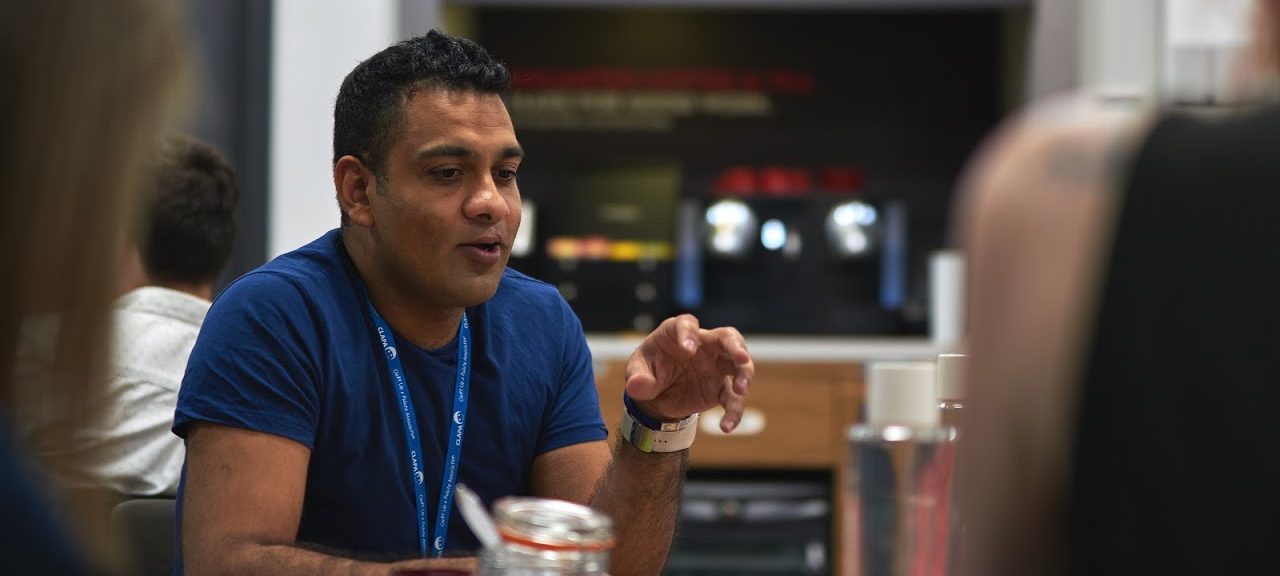

Your palate moves around when you talk; it lets air through your nose for sounds like ‘m’ and ‘n’ and blocks air from your nose for sounds like ‘b’ and ‘t’.
A cleft palate can make it harder to block air from the nose. Someone born with a cleft palate might sound nasal or ‘muffled’ and may find it difficult to make certain sounds. Around half of all children born with a cleft palate will need speech therapy. Around 40% of them still sound ‘noticeably different’ to other children by the time they start school.
It’s tough to struggle to be understood by others, and it’s doubly hard when they aren’t patient enough to try and understand you.
“Please have patience and take the time to speak to a child even if you may not understand every word clearly. A child going through their cleft journey, may be having to work so much harder in order to be heard clearly. My daughter has had experience of ‘language’ teachers at secondary school lose patience because they couldn’t easily understand her, be dismissive and move on.”
(Louise, Billericay)
“Even after years of speech therapy and three surgeries I know my voice is hard for some people to understand straightaway. Most of the time people are fine about though I might have to repeat myself a few times, […but] sometimes people are impatient and rude and it definitely hurts. I have to work so hard to speak clearly, but you can’t make any extra effort to understand me?”
(Anonymous)

